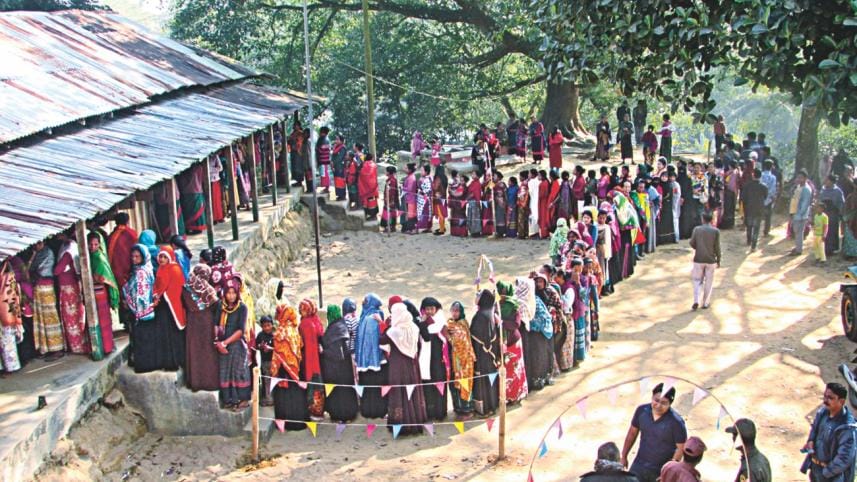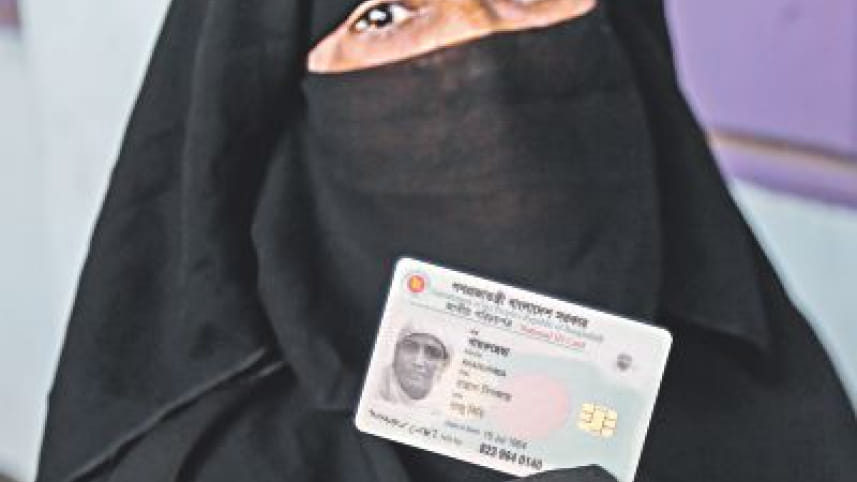Of Queues and Chaos

Female voters form a long queue at the Mohalchhari Government Primary School polling centre in Khagrachhari's Golabari around 10:00am yesterday.
Photo: Anvil Chakma, Amran Hossain, Orchid Chakma, Sk Enamul Haq

A voter who had his national ID card talks to the presiding officer of Viqarunnisa Noon School & College polling centre yesterday after being told he was not a voter of that centre. The man despite being a local was denied at two polling centres. He eventually left without casting his vote.

A woman shows her smart national ID card at Shishubagh School polling centre in Narayanganj. 4. Voters asking a party activist for their serial numbers at Khilgaon Model College centre in Dhaka.

Voters asking a party activist for their serial numbers at Khilgaon Model College centre in Dhaka.

Alleged ruling party men storm a polling booth at the Ideal School and College centre in Motijheel but police eventually drove them away.

Along with his brother and Awami League nominee AK Abdul Momen, Finance Minister AMA Muhith goes to Durghakumar Primary School polling station in Sylhet city to vote.

Oikyafront candidate for Dhaka-8 Mirza Abbas having his blood pressure checked at his Shahjahanpur home yesterday.



 For all latest news, follow The Daily Star's Google News channel.
For all latest news, follow The Daily Star's Google News channel.
Comments